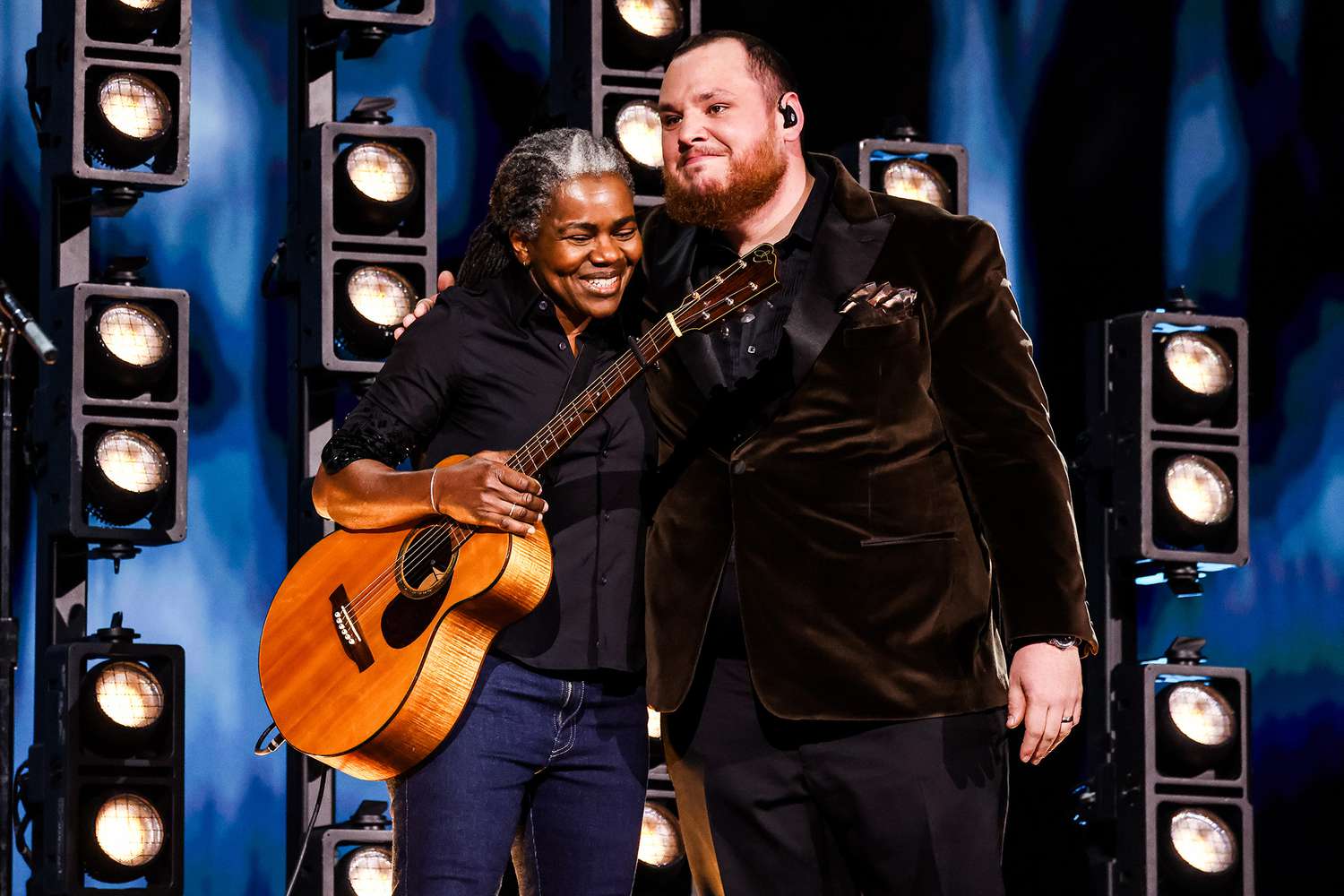You’ve got a fast car. I got plans to take us away. These famous lyrics ring out as Tracy Chapman and Luke Combs meet eyes to share a private smile during their 2024 Grammys duet of “Fast Car”. Their presence on the stage together is unprecedented, and due to the true emotional vulnerability of the song, many of the audience members are even moved to tears.
With raw, emotional lyrics conveyed through a stripped-down folk-rock style, “Fast Car” has become an unexpected anthem transcending contemporary partisanship. Originally written and recorded by Tracy Chapman, a black lesbian artist, “Fast Car” offers a piercing look at the impacts of poverty passed through generations. This perspective is on brand for Chapman’s music, which often delivers commentary on systemic issues such as racism and classism through a socially conscious lens. She first gained attention on college radio stations before the single broke through to mainstream popularity. Chapman quickly became a critical darling while garnering fans across backgrounds due to her authentic, moving songwriting that was known for highlighting social issues. For instance, her hit single “Talkin’ ‘Bout a Revolution”, the first track on her album “Tracy Chapman”, is a “an ode” to the “many ordinary lives that assemble to protest for social and political change.” The following tracks on this album continue to emphasize Chapman’s message to her listeners regarding the effects of social and political conflicts, with the song “Behind the Wall” telling a story of domestic abuse and “Across the Lines” highlighting the purposeful separation between white and black Americans that continued into the 80s. Her music resonated widely for capturing the quiet devastation of intergenerational trauma plaguing those stuck in cycles of hardship.
The song “Fast Car” depicts someone trying to escape a life of poverty and family dysfunction by hitting the open road. As evidenced by lyrics about working for little pay and an alcoholic father (“See my old man’s got a problem / He lives with the bottle, that’s the way it is”), the protagonist comes from difficult circumstances yet dreams of a better future with her lover. She hopes that leaving town in a “fast car” will transport them somewhere they can avoid generational poverty and build a new life together.
Chapman’s identity as a Black lesbian woman adds depth to the song’s narrative. The intersection of racism, classism, and heteronormativity creates unique challenges for queer people of color seeking to escape oppressive systems. The protagonist’s desire for a better life with her lover can be interpreted as a longing for freedom not only from economic hardship but also from the marginalization and discrimination faced by Black LGBTQ+ individuals. Chapman’s own experiences navigating these intersecting identities imbue the song with a sense of authenticity and urgency, making the protagonist’s dreams of a fresh start all the more poignant.
Decades later, Luke Combs, a white male country star popular with blue-collar working-class fans, released a cover of “Fast Car” that took on new poignant meaning in 2023’s especially divided political era. With the presidential election looming, tension between parties is increasingly present, especially with the array of controversial global events occurring in recent months. While many country artists stick to patriotic or romantic themes, Combs differentiated himself by spotlighting the everyday struggles of ordinary Americans. Just this past year, the country singer released a track titled “Joe”, which tells the story of a sober individual who has long struggled with alcoholism. The song’s chorus ends with a couplet of notably powerful lyrics: “Here’s to good days and better tomorrows/ And light at the end of the bottle.” Combs took to his Instagram in February 2023 to provide some insight into the release of a song with a theme so unique to typical country music; he wrote, “I’ve got buddies who live a sober lifestyle, and I’m sure y’all know someone who has struggled with these type of things, or maybe you, yourself do.”
Though his fanbase skews more conservative, Combs’s emotional version of “Fast Car” still spoke to universal feelings of despair and flickering optimism in the face of economic instability – feelings that know no political affiliation. Much like Chapman, his stripped-down, raspy vocals channel the pain of sacrifice as generations remain trapped chasing the ever-elusive American Dream.
Though Tracy Chapman herself has commended Combs for his newfound success with her song, many listeners are highly critical of the re-recorded version. The most common critique, as observed by Emily Yahr of the Washington Post, is that Combs’ success with young country listeners is “‘clouded by the fact that, as a Black queer woman, Chapman would have almost zero chance of that achievement herself in country music’”. When asked to share their feelings towards the new version of “Fast Car”, many Black individuals working in the music industry agreed with this critique, though they did recognize Luke Combs’ artistic talent, as well as his ability to continue Chapman’s legacy and remind younger and older generations alike of her powerful lyrics. Holly G., founder of Black Opry (a Black country music organization), explains that “it’s hard to lean into that excitement knowing that Tracy Chapman would not be celebrated in the industry without that kind of middleman being a white man.”
Despite these controversies, the bipartisan spirit undoubtedly embodied by these two artists showcases music’s power to bring people together across divides. Despite contrasting backgrounds, both Chapman and Combs tap into the shared emotions underlying financial precarity. In an increasingly polarized climate, the song’s message serves as a timely reminder of the universal experiences that bind us. It speaks to those of us who have dealt with financial exhaustion or lack of opportunity, both of which are experiences had by Democrats and Republicans alike. By grounding discourse in our common humanity, art like “Fast Car” can help begin mending a broken nation.
Thirty years since its release, the collaborative hit single continues gaining popularity and recognition across genres. Most recently, Most recently, Combs invited Chapman to perform “Fast Car” together at the 2024 Grammy Awards in a powerful demonstration of music’s capacity to bridge ideological rifts. Their joint rendition earned a rare standing ovation for an unprecedented blend of folk eloquence and country grit. Much like the song’s progression, the performance built from solemn reflection into a soaring, defiant chorus with the artists’ voices coming together in unlikely harmony – proving once again this unlikely anthem can traverse boundaries to touch the collective soul.
Featured image: Entertainment Weekly






Comments are closed.